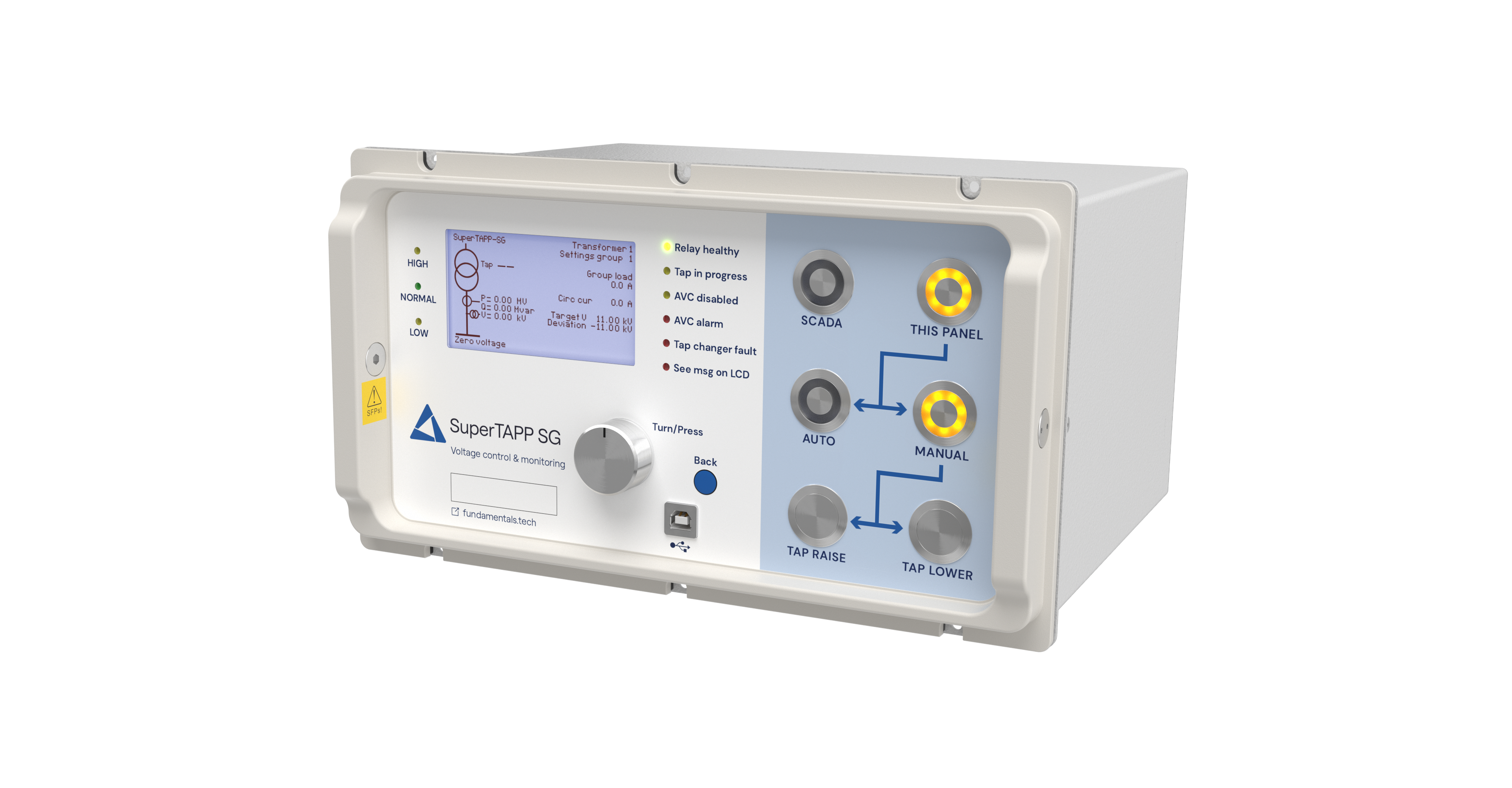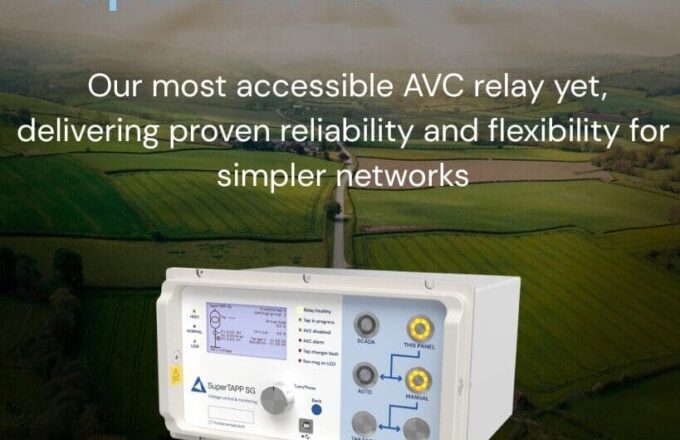Who says Britain can’t make things anymore?

Dr Jon Hiscock, CEO of grid voltage control engineers Fundamentals, argues that the UK’s growing army of specialist tech SMEs needs a consistent industrial policy to unlock Britain’s potential as a world leader in clean energy technologies.
Who says Britain can’t make things anymore?
The UK’s first industrial revolution was driven by inventors and engineers, whose innovative genius made us global leaders in manufacturing. The current industrial revolution has the potential to make us leaders in technologies ranging from pharmaceuticals and artificial intelligence, to clean energy – which is where companies like Fundamentals come in.
This time, the UK’s small and medium-sized enterprises (SMEs) are once more delivering much of the ingenuity and engineering that is fundamentally changing the way things work. This may not bring back large-scale manufacturing to these shores. But we are again making things that make a difference, creating thousands of jobs and prosperity.
In our case, we develop, design and manufacture industry-leading products which enable electricity network operators to control voltages – essential for enabling our transition from the grid designed in the 1950s, to a new era of intermittent renewable generation, electric vehicles and heat pumps.
SMEs’ £2.4 trillion contribution
Fundamentals is one of Britain’s 37,000 medium sized companies (30-249 employees). We collectively employ 3.6 million people, up 25% since 2010, according to recent government figures.
All told, SMEs account for around three-fifths of employment and half of turnover in the UK private sector. At the start of 2023, SMEs employed 16.7 million people (61% of the total), whilst turnover was estimated at £2.4 trillion (53%).
The history of our development is a classic SME story – from two men in a shed with a groundbreaking idea, to the creation and continuous evolution of a range of successful products.
My father Nick Hiscock and his colleague Chris Goodfellow laid the foundations for Fundamentals in the 1980s, by ‘applying fundamental principles of engineering to solve problems’ – in this case an electrical control circuit, which enabled the efficient operation of multiple power transformers in parallel.
New grid technologies
Their invention of TAPP (Transformer Automatic Paralleling Package) spurred the development of our initial SuperTAPP product and subsequent iterations through to today’s SuperTAPP SG (smart grid) – establishing us as world leaders in automatic voltage control solutions (AVCs) for electrical grids.

The SuperTAPP SG is the world’s most advanced automatic voltage control (AVC) relay.
Although the SuperTAPP SG functionality is deployed as a discrete substation device, i.e. hardware incorporating some groundbreaking software, we are progressively developing it as a software-only product that can be integrated with a more centralised substation hardware platform. Less manufacturing with physical components, but still applying the fundamental principles of engineering to solve problems.
The importance of voltage control is growing continuously. The thousands of new ‘green’ devices being connected to the grid each month can cause voltage spikes and dips, leading to problems ranging from inefficient equipment operation and increased energy losses, to failures and system outages.
Apart from their effect on customer service, and operators’ regulatory duty to operate within set parameters, uncontrolled voltages cause higher than necessary energy consumption and carbon emissions.
International markets
The challenge of controlling voltages in a new era of distributed renewable generation and changing consumer behaviour is an issue for every country transitioning from centralised, fossil-fuelled models, to a far more dynamic, diverse and interactive energy ecosystem.
Our research has identified potentially major markets for our voltage control solutions in the USA, Australia, India and Spain, in particular. Which raises the question facing many SMEs at some point in their journeys: how do we step up from being a relatively small, specialist manufacturer with a well-proven solution to one of the world’s problems, to a size where we can fully exploit the potential of our products?
A Clean Power Industrial Strategy is being developed by government, GB Energy, Ofgem and the big industry players. But like dozens of fellow SMEs, our concern is that we are too small to be recognised as ‘strategic resources’ in the policies that should stem from it.
We think this needs to change. Because collectively, we have the potential to deliver the home-grown technologies which are essential to transform our electricity systems. And create thousands more high-skilled jobs. And establish Britain as a world leading exporter of grid transition technologies.
‘Invest ahead of need’
Our campaign to be recognised as key players in the Clean Power transition is being led be BEAMA, the UK trade association for energy infrastructure and systems.
BEAMA has published Industrial Strategy white paper, spelling out in detail the potential contribution that members can make to the Industrial Strategy – and the challenges that need to be overcome.
BEAMA CEO Yselkla Farmer wrote that some members need to scale up their production tenfold from current levels, adding: ‘Investment requires profound changes to the way we plan, manage and design our energy system. We need to invest ahead of need.’
The ‘invest ahead of need’ principle is the foundation of any sound industrial strategy – because gearing up everything from skills to production takes years rather than months. It is certainly working for China, as decades of strategic planning are paying dividends in everything from dominating solar panel production, to electric vehicle market penetration.
Why we need certainty
In the UK, big nuclear and wind projects have negotiated deals which provide the certainty they need for long-term investment and planning.
SMEs like us also need certainty, in the form of a strategic framework that will make it clear what and when the industry needs from suppliers, and what and when suppliers need to deliver, to meet Clean Power 2030 targets and beyond. This would enable us to invest with confidence in everything from product development and manufacturing capacity, to recruitment and skills.
The current reality is that many smaller companies like ours work with order books of a few months ahead, with little ability to ‘invest ahead of need’. And if there are unplanned increases in orders, they will be placed elsewhere. Probably overseas.
From little acorns
We are mindful that some of Britain’s most successful companies started as tiny SMEs with good engineering ideas, and have prospered as independent enterprises, free from the shifting sands of stock market sentiments.
Think of JCB founder Joe Bamford, whose first product was a hydraulic tipping trailer, made in a lock-up garage. Or Sir James Dyson, whose miniaturisation of industrial dust extraction cyclones transformed the vacuum cleaner market.
Going forward as proudly independent British innovators, engineers and manufacturers, we would like to join their ranks on the world stage.
Learn more

- Article
- Automatic Voltage Control (AVC/AVR)
- LV Network Control
Autumn Budget must incentivise local solar to fast-track green energy transition

- Automatic Voltage Control (AVC/AVR)
Danger, danger, high voltage

- Automatic Voltage Control (AVC/AVR)
Fundamentals delivers affordable, intelligent voltage control for industrial and private network operators, helping them prepare for low carbon grid expansion

- Automatic Voltage Control (AVC/AVR)
- Control Scheme Services
- LV Network Control
- Tapchanger Services